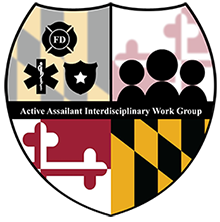Special Events and Tourist Attractions
A selection of references, training, and videos have been compiled below to assist individuals planning for and working at special events and tourist attractions with understanding how to prevent, prepare for and respond to an active assailant incident. These resources may be used as a starting point for planning and risk management of both indoor and outdoor gatherings of large groups of people.
Prevention & Preparedness
https://www.secretservice.gov/sites/default/files/reports/2023-01/usss-ntac-maps-2016-2020.pdf
The United States Secret Service National Threat Assessment Center published a study that analyzed 173 targeted attacks from 2016-2020 that occurred at public or semi-public locations. The report is intended to help guide prevention efforts of violent attacks by reviewing behavioral threat assessments of the attacks.
https://lasd.org/active-shooter/
Video and website created by the Los Angeles County Sheriff’s Department that is highly effective showing various types of locations (work, soft targets, educational facilities, etc.) where an active assault could occur. It provides the audience with tools that can assist in how to respond effectively during a rapidly evolving incident.
Training & Exercises
https://www.ready.gov/sites/default/files/2020-07/until-help-arrives-web-tutorial.pdf
Training video and web-based training course created because life-threatening emergencies can happen fast, and emergency responders aren’t always nearby. These injuries can require immediate action to prevent an injured person from dying, so those nearest to someone are best positioned to provide first care.
https://ncs4.usm.edu/training/dhs-fema-courses/
The NCS4 offers courses for multi-disciplined professionals responsible for the safety and security of sporting and special events. Courses are in the areas of risk management, incident management, communications, evacuation, and protective actions. They have expanded their offerings to include a Certified Sport Security Professional (CSSP) certification for individuals who hold leadership positions in the sports security industry and meet the requisite education and experience requirements. There is also a Certified Sports Venue Staff (CSVS) certification that recognizes front line venue and event staff who have completed standardized, role-specific training intended to provide a baseline understanding of safety and security functions.
https://www.cisa.gov/resources-tools/services/cisa-tabletop-exercise-packages
The Cybersecurity & Infrastructure Security Agency’s Tabletop Exercise Packages (CTEPs) are a comprehensive set of resources designed to assist stakeholders in conducting their own exercises. Partners can use CTEPs to initiate discussions within their organizations about their ability to address a variety of threat scenarios.
One of the best ways to increase a person’s likelihood of survival when severely injured during active assailant incident is to quickly stop severe bleeding. Coworkers can provide initial life-saving measures. The Stop the Bleed® site provides resources on how to organize an in-person training, life-saving strategies and posters, instructional videos, and aid kits to place in common areas.



